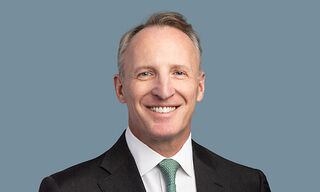The Swiss bank's boom quarter reveals that it needs to overhaul its strategy and targets faster than it plans to.
Zurich-based UBS reported a strong profit increase on Tuesday, with revenue up two percent to $9.1 billion while shrinking its spending bill by one percent to $6.3 billion. Over the first nine months, its profit powered ahead 24 percent on the year to $6.1 billion.
That's really good – almost too good, in fact: UBS already lifted its revenue by 12 percent to $32.4 billion last year. Its spending edged an admirably restrained four percent higher to $24.2 billion while its full-year net profit surged by more than half to $6.6 billion.
Undercutting Metrics
The wealth manager's strategic targets were already fulfilled last year: it set a goal on its CET1 ratio – the toughest form of capital – of 12 to 15 percent. Last year, it hit 17.6 percent. The pattern repeats itself on its cost-income ratio, where it targets a range between 75 and 78 percent, but already undercut that last year with 73 percent.
The capital metrics improved to 20.8 percent and 19.5 percent for CET1 capital for the third quarter and nine months, respectively, and to 68.7 percent and 71.4 percent for the cost-income ratio.
Spurt In Core Activity
UBS' overachiever status is especially obvious in its flagship wealth arm, where growth last year of more than 20 percent overshot a goal range of ten to 15 percent. So far this year, its private bankers have exceeded the band again, with 43 percent in the most recent quarter and 34 percent year-to-date.
The litany of numbers underscores that UBS needs more ambitious targets than those it has set itself. While CEO Ralph Hamers will find it refreshing to hit goals so handily, UBS' detractors note that it is notorious for setting too-low targets.
Overseer's Last Act
To Hamers' credit, he has updated a target from 2018's strategy to cut spending by at least $1 billion within two years. On Tuesday, he flagged a strategy update for February which appears, in view of the healthy financial result, as urgent.
For overseer Axel Weber, who is due to retreat in April, the situation is more complicated: he is to chaperone the strategy deliberations and present them – shortly before he is replaced as chairman.

























